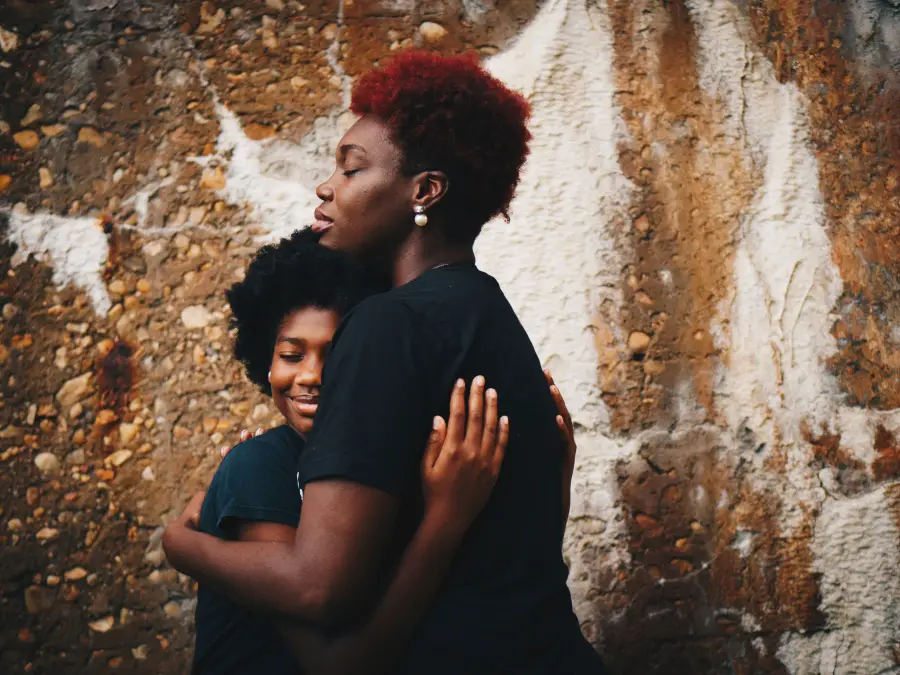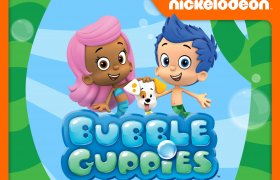You’re Probably Not the Cool Parent, but that’s Okay

So many parents and children alike live under the impression that there are two types of parents in this world: the cool ones and the uncool ones. Teens gossip and rumor about such features as if they’re an ideal, the image of the perfect parent, the parent every child growing up would want and the one every rebellious teen could benefit from having.
However, such a high standard for what is considered to be a cool parent is so difficult to obtain if you are still overly concerned about your child’s well-being and if you tend to be a little overprotective by nature. Perhaps your own upbringing has impacted the way you yourself go about parenting and household rules and everything, or perhaps your own parents’ attachment style has shaped your own, depending on what you liked and did not like when it came to their attitude towards several problems. Certain is that while every child would like to have a “cool parent”, they also have different definitions of what a cool parent entails and their own parents have a different perception of what they would need to do to be considered that as well.
That’s where the main rifts become obvious, in the attempt to be something your child would like, but at the same time not being fully aware of what that really means.
Have you ever wondered why a parent suddenly wants to be more by their child’s heart, though? That’s where the desired change of behavior comes from, where the roots of the “I want to be a cool parent” are buried deep into.
 The answer is that the more likable and “cool”, by their teen’s terms, the parent is, the more they feel like they will be closer to their own child as they grow older, and that they can avoid potential relationship rifts or shakes whenever either of them are going through a rougher period of time or period of their lives. It’s a need and a desire for closeness, for that sense of relatableness in each other’s lives and it’s a need for mutual trust, something that a parent tries to install in their child even from a young age and tries to nurture while growing up. Trust is singlehandedly the most important base ingredient for any relationship, be it a friendship, a lovers bond or a parent-child one, and it’s well-known by everyone, everywhere. As such, whenever the child shows signs of starting to distance themselves from their parent (on purpose or not), some alarm signals get fired in the parent’s brain. They don’t know outright what’s wrong, and as such is born the need to become closer to their own child, regardless of the fact that independence is a healthy and beneficial thing for a teen either way.
The answer is that the more likable and “cool”, by their teen’s terms, the parent is, the more they feel like they will be closer to their own child as they grow older, and that they can avoid potential relationship rifts or shakes whenever either of them are going through a rougher period of time or period of their lives. It’s a need and a desire for closeness, for that sense of relatableness in each other’s lives and it’s a need for mutual trust, something that a parent tries to install in their child even from a young age and tries to nurture while growing up. Trust is singlehandedly the most important base ingredient for any relationship, be it a friendship, a lovers bond or a parent-child one, and it’s well-known by everyone, everywhere. As such, whenever the child shows signs of starting to distance themselves from their parent (on purpose or not), some alarm signals get fired in the parent’s brain. They don’t know outright what’s wrong, and as such is born the need to become closer to their own child, regardless of the fact that independence is a healthy and beneficial thing for a teen either way.
As such, in their attempt to become a cooler parent, one that their child could relate to more and feel more inclined to approach for relevant advice on whatever matter is pressing them (relationship advice, friend group advice, school rants, and issues or even personal struggles as well), the parent starts to adopt some mannerisms or preferences that their own child has – and it can be a really bad thing to do if taken to extremes.
It can be a hit or miss to try to adopt some of your child’s likes or hobbies or interests overall and then show this to them and ask to be involved (although it does and will always feel like you’re forcing it, not asking, solely because they cannot refuse you out of feeling guilty that it might upset you), especially depending on the context and the crowd you two are with at that time. If you picked up their love for playing video games, then playing together might be cool and enjoyable for both of you, but if you decided to try to match the color of your clothes with your child’s own for several days in a row, then you can rest assured that this currently does and will continue to upset them, and what’s worse is not that they might be momentarily annoyed or confused by what you’re trying to do, but that they will feel embarrassed by their parent trying to copy things that they are doing, for no apparent reason either.
In short, you might make matters worse if you felt like your child was growing distant from you. They will most likely also complain to their own friends about whatever it is that you’re trying to copy from them if it embarrasses or otherwise makes them feel like it erases a part of their uniqueness. Maybe wearing a bandana around their wrist is their own signature in their group of friends, you really don’t need to take it away from them by starting to wear one as well. It gives them a sense of uniqueness, of independence and it makes them feel confident and have more self-esteem if they are able to be recognized by something that is uniquely them.
When it comes to public matters, a try-hard cool parent might end up saying or doing something to embarrass their child once more. It’s easy to lose sight of your own attempts of trying to look “cool” or whatever you think your child’s perception of cools and make a blunder of it accidentally. A much better idea instead is to try not to put up an act just to seem more relatable or “with the young crowd” and just be your usual self – cool or not. For all you know, you might even actually be the coolest parent in your child’s group of friends anyway.
When it comes to what a child thinks a cool parent is, though, things start to change. Contrary to popular belief, they don’t perceive someone as a cool parent if they copy their own offspring in whatever they do. Instead, a cool parent gives them freedoms that they haven’t had before, or otherwise are forbidden from having in the present.
Think about everything it was that you wanted to do as a child that your parents didn’t normally let you do by default. Stay up late, or have no bedtime whatsoever? I can hardly recall going to sleep at an hour I had set myself when I was little, it was all an unspoken rule set by the parent. Eat junk food or snacks instead of any of the main meals of the day, or before a meal? As if that even was a thing! You would put your hand on one little biscuit and you would already be able to hear your mother yelling from two rooms away in a bone-chilling voice “No sweets before the soup!” which made your hand instantly drop whatever you had grabbed anyway, out of fear that you might not be allowed to eat it after the meal either.
 Basically, a cool parent is a lenient one. It’s what many specialists call a “friend-parent” and then they start expressing their support or show their discouragement towards that kind of parenting. Truth be told, it has its ups and downs as a parenting style, sure, but it’s all about how you manage to keep them balanced and how you’re able to work out a downside and turn it into a positive thing.
Basically, a cool parent is a lenient one. It’s what many specialists call a “friend-parent” and then they start expressing their support or show their discouragement towards that kind of parenting. Truth be told, it has its ups and downs as a parenting style, sure, but it’s all about how you manage to keep them balanced and how you’re able to work out a downside and turn it into a positive thing.
And because a cool parent is a lenient parent, a child expects them to make compromises regarding the household rules for more fun to be had. Bedtime arrangements can be pushed back if you think the child’s schedule can allow this wish of theirs, only if they would still be getting enough sleep for their age afterward. Regarding eating arrangements, it’s really all about your child’s trustworthiness. If they promise to eat the homemade food even after snacking or filling themselves up with sweets, then sure, let them try that once and they will realize soon enough that the struggle to finish food after they became full already is stronger than the desire to eat chips before.
So really, it’s about allowing them to try things out and see how and if those work out for them, before returning to the old schedule or routine arrangements if nothing good happened. However, that’s already no longer a “cool parent” feature if you don’t allow them to do everything their way, but it’s a much better parenting style and you should not feel bad about being one and not the other. After all, the one who knows what is best for their child is you and you alone, their parent, and their spurts of rebellion won’t last long anyway, you shouldn’t allow them to completely wreck up their health or lifestyle just because they might want to do something that only gives off momentary satisfaction. It’s the long-term effects that matter most and they will learn that as time goes by.
Just remember: the only cool parent you should strive to be is the cool parent who looks out for both their child’s mental and physical health and their happiness overall.






